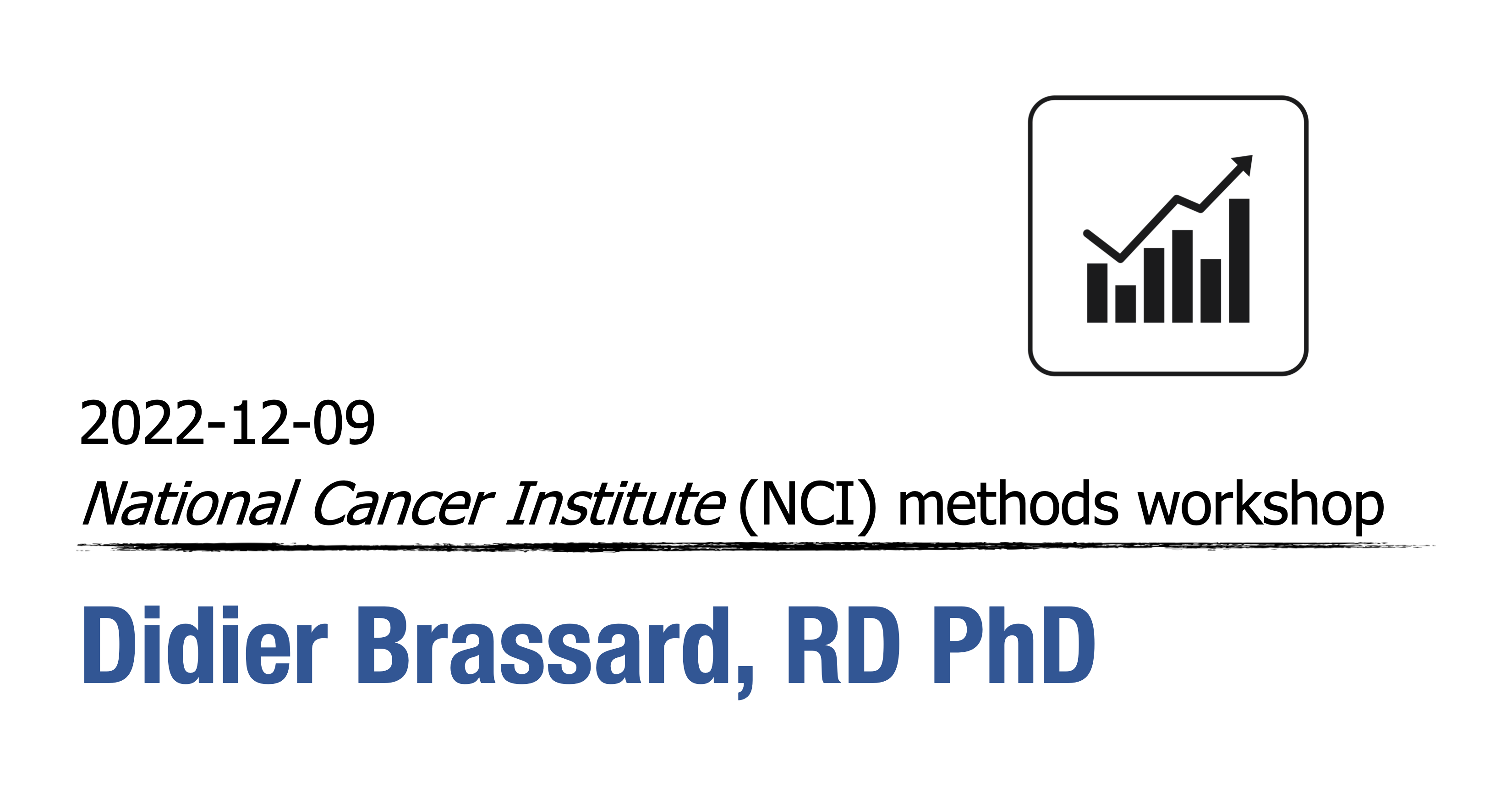Portfolio item number 1
Short description of portfolio item number 1
Short description of portfolio item number 1
Short description of portfolio item number 2 
Published in Am J Clin Nutr, 2017
The objective was to compare the impact of consuming equal amounts of SFAs from cheese and butter on cardiometabolic risk factors.
Recommended citation: Brassard D, Tessier-Grenier M, Allaire J, et al. Comparison of the impact of SFAs from cheese and butter on cardiometabolic risk factors: a randomized controlled trial. Am J Clin Nutr 2017. doi:10.3945/ajcn.116.150300
Download Paper
Published in J Nutr, 2018
The objective was to examine how diets rich in SFAs from either cheese or butter influence HDL-mediated CEC, compared with diets rich in either monounsaturated fatty acids (MUFAs) or polyunsaturated fatty acids (PUFAs).
Recommended citation: Brassard D, Arsenault BJ, Boyer M, et al. Saturated Fats from Butter but Not from Cheese Increase HDL-Mediated Cholesterol Efflux Capacity from J774 Macrophages in Men and Women with Abdominal Obesity. J Nutr 2018. doi:10.1093/jn/nxy014
Download Paper
Published in Nutrients, 2018
The objective of this study was to compare the accuracy of interview-based and web-based FFQs to assess energy requirements.
Recommended citation: Brassard D, Lemieux S, Charest A, et al. Comparing Interviewer-Administered and Web-Based Food Frequency Questionnaires to Predict Energy Requirements in Adults. Nutrients 2018. doi:10.3390/nu10091292
Download Paper
Published in Can J Cardiol, 2018
The aim of this study was to provide dietary intake estimates using an age- and sex-representative sample of French-speaking adults with Internet access from 5 administrative regions in the province of Quebec, Canada.
Recommended citation: Brassard D, Laramée C, Corneau L, et al. Poor Adherence to Dietary Guidelines Among French-Speaking Adults in the Province of Quebec, Canada: The PREDISE Study. Can J Cardiol 2018. doi:10.1016/j.cjca.2018.09.006
Download Paper
Published in Curr Dev Nutr, 2019
The aim of this study was to compare different combinations of web-based instruments to assess population-level dietary intake estimates (means and percentiles) and their precision
Recommended citation: Brassard D, Fulgoni VL, Robitaille J, et al. Examining the Advantages of Using Multiple Web-Based Dietary Assessment Instruments to Measure Population Dietary Intake: The PREDISE Study. Curr Dev Nutr 2019. doi:10.1093/cdn/nzz014
Download Paper
Published in Can J Cardiol, 2019
Response to a commentary by Lucas and Willett
Recommended citation: Brassard D, Lamarche B. Reply to Lucas and Willett-A Score Derived From the Canadian Food Guide for Assessing Diet Quality: A Risky Illusion? Can J Cardiol 2019. doi:10.1016/j.cjca.2018.12.034
Download Paper
Published in Nutr J, 2019
The objective was to assess the contribution of low nutritive value foods to total energy intake (E) and to examine associations with cardiometabolic risk factors among French-speaking adults from 5 administrative regions of the Province of Quebec.
Recommended citation: Brassard D, Laramée C, Provencher V, et al. Consumption of low nutritive value foods and cardiometabolic risk factors among French-speaking adults from Quebec, Canada: the PREDISE study. Nutr J 2019. doi:10.1186/s12937-019-0474-y
Download Paper
Published in Front Nutr, 2020
The objective was to compare dietary intake estimates obtained using a web-based or interviewer-administered 24-h recall in population-based samples from the province of Québec in Canada.
Recommended citation: Brassard D, Laramée C, Robitaille J, et al. Differences in Population-Based Dietary Intake Estimates Obtained From an Interviewer-Administered and a Self-Administered Web-Based 24-h Recall. Front Nutr 2020. doi:10.3389/fnut.2020.00137
Download Paper
Published in Am J Clin Nutr, 2021
The aim of this study was to document the change in diet quality and in food insecurity observed during the COVID-19-related early lockdown
Recommended citation: Lamarche B, Brassard D, Lapointe A, et al. Changes in diet quality and food security among adults during the COVID-19-related early lockdown: results from NutriQuébec. Am J Clin Nutr 2021. doi:10.1093/ajcn/nqaa363
Download Paper
Published in Appl Physiol Nutr Metab, 2022
This study describes the development and scoring standards of the Healthy Eating Food Index (HEFI-2019)
Recommended citation: Brassard D, Elvidge Munene LA, St-Pierre S, et al. Development of the Healthy Eating Food Index (HEFI)-2019 measuring adherence to Canada's Food Guide 2019 recommendations on healthy food choices. Appl Physiol Nutr Metab 2022. doi:10.1139/apnm-2021-0415
Download Paper
Published in Appl Physiol Nutr Metab, 2022
The objective of this study was to evaluate the construct validity and reliability of the Healthy Eating Food Index-2019 (HEFI-2019)
Recommended citation: Brassard D, Elvidge Munene LA, St-Pierre S, et al. Evaluation of the Healthy Eating Food Index (HEFI)-2019 measuring adherence to Canada's Food Guide 2019 recommendations on healthy food choices. Appl Physiol Nutr Metab 2022. doi:10.1139/apnm-2021-0416
Download Paper
Published in Am J Clin Nutr, 2022
The aim of this study was to examine how greater adherence to the 2019 CFG's recommendations on healthy food choices influences the risk of incident CVD.
Recommended citation: Brassard D, Manikpurage HD, Thériault S, et al. Greater Adherence to the 2019 Canada's Food Guide Recommendations On Healthy Food Choices Reduces the Risk of Cardiovascular Disease in Adults: a Prospective Analysis of UK Biobank Data. Am J Clin Nutr 2022. doi:10.1093/ajcn/nqac256
Download Paper
Published in J Nutr, 2023
The aim was to assess the relationship between adherence to CFG recommendations on healthy food choices and intake of key nutrients in adults 65 years and older from the Canadian Community Health Survey (CCHS) 2015 - Nutrition.
Recommended citation: Brassard D, Chevalier S. Relationship between Adherence to the 2019 Canada's Food Guide Recommendations on Healthy Food Choices and Nutrient Intakes in Older Adults. J Nutr 2023. doi:10.1016/j.tjnut.2023.07.005
Download Paper
Published in JMIR Res Protoc, 2025
The aim was to describe the protocol for a target trial emulation in older adults, with an emphasis on key aspects of a hypothetical sustained diet and physical activity intervention.
Recommended citation: Brassard D, Presse N, Chevalier S. Estimating the Effect of Adhering to the Recommendations of the 2019 Canada’s Food Guide on Health Outcomes in Older Adults: Protocol for a Target Trial Emulation. JMIR Res Protoc 2025;14:e65182
Download Paper
Coding club workshop, School of Human Nutrition, McGill University, 2022

Coding club workshop, School of Human Nutrition, McGill University, 2023
